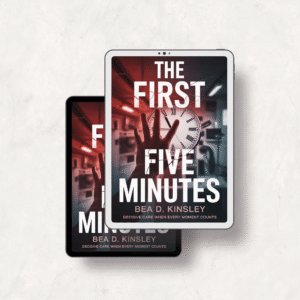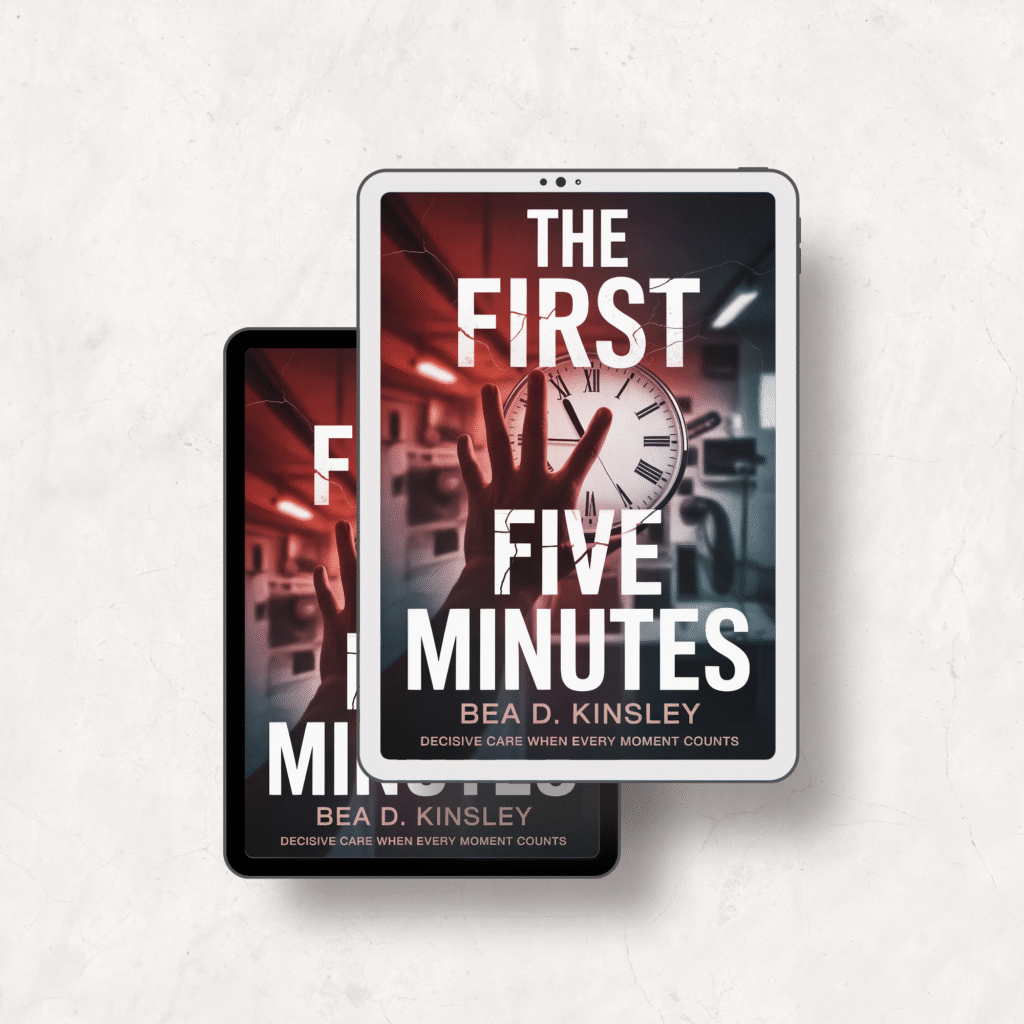The First Five Minutes Decisive Care Review – Complete Guide to Emergency Medical Response and Life-Saving Techniques

Emergency medical situations demand immediate, decisive care when every second counts toward saving lives. Whether you’re a healthcare professional, first responder, or concerned citizen, understanding how to respond effectively during medical emergencies can mean the difference between life and death. “The First Five Minutes: Decisive Care When Every Moment Counts” provides essential emergency preparedness training that transforms panic into purposeful action during critical moments.
This comprehensive emergency care guide teaches rapid assessment techniques, life-saving interventions, and crisis management strategies that work in real-world scenarios. Unlike theoretical medical texts, this practical resource focuses on immediate decision-making skills and emergency response protocols that anyone can master, making it an invaluable addition to any first aid training program.
What You’ll Discover
- Rapid Visual Assessment Techniques: Master quick identification of life-threatening conditions through systematic observation and emergency triage protocols
- Life-Saving Intervention Strategies: Learn proven medical emergency procedures including airway management, hemorrhage control, and cardiac arrest response
- Crisis Decision-Making Frameworks: Develop critical thinking skills for prioritizing actions under pressure using evidence-based emergency medicine principles
- Team Communication Protocols: Enhance coordination and information sharing during high-stress medical emergencies to maximize patient outcomes
- Stress Management Techniques: Overcome performance anxiety and maintain composure during medical crises through proven psychological preparation methods
- Emergency Preparedness Systems: Create comprehensive response plans for various scenarios from cardiac events to traumatic injuries
Why This Book Matters
Medical emergencies strike without warning, and the first five minutes often determine survival outcomes. This emergency care training resource addresses the critical gap between basic first aid knowledge and advanced medical intervention by teaching decisive care principles that work under pressure. The book’s focus on practical application over theoretical knowledge ensures readers can confidently respond to real medical crises.
Healthcare professionals praise this guide for its evidence-based approach to emergency medicine, while everyday readers appreciate its accessible language and actionable strategies. The comprehensive coverage of emergency preparedness topics makes it suitable for workplace safety programs, community health initiatives, and personal skill development.
Key Features
This comprehensive emergency care ebook spans multiple chapters covering rapid assessment, intervention protocols, team communication, and psychological preparation. Available as an instant digital download, you’ll receive immediate access to detailed case studies, step-by-step procedures, and decision-making flowcharts. The format allows for easy reading on any device, with printable emergency reference guides for quick access during actual crises. Also available as audiobook on Google Play Books and Spotify for convenient learning during commutes or workout sessions.
Frequently Asked Questions
How does this emergency care guide differ from basic first aid training courses?
This decisive care approach goes beyond traditional first aid by teaching advanced assessment techniques and intervention protocols typically reserved for medical professionals. While basic first aid covers fundamental responses, this guide focuses on critical decision-making during the crucial first five minutes when rapid action saves lives.
Can non-medical professionals safely apply these emergency response techniques?
Absolutely. The book emphasizes evidence-based techniques that prioritize patient safety while teaching appropriate scope of practice for different skill levels. Each intervention includes clear guidance on when to act, when to wait for professional help, and how to avoid common emergency response mistakes.
Is this emergency preparedness guide suitable for workplace safety programs?
Yes, many organizations use this resource for employee emergency training because it addresses real-world scenarios beyond basic workplace first aid. The systematic approach to crisis management and team communication makes it ideal for safety coordinators and emergency response teams.
Get Your Copy Today
Transform your emergency preparedness with this comprehensive decisive care guide. Available for instant download at just $6.99, this ebook provides exceptional value compared to expensive emergency medical training courses or workplace safety seminars. Also available as audiobook on Google Play Books and Spotify for flexible learning. Purchase your copy through all major ebook retailers including Apple Books, Barnes & Noble, and Kobo to begin mastering life-saving emergency response techniques today.
Watch the Video Review

